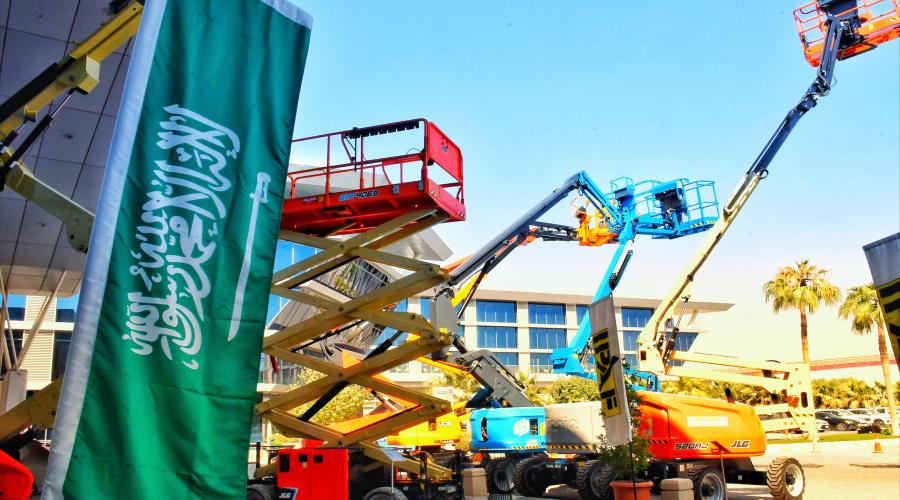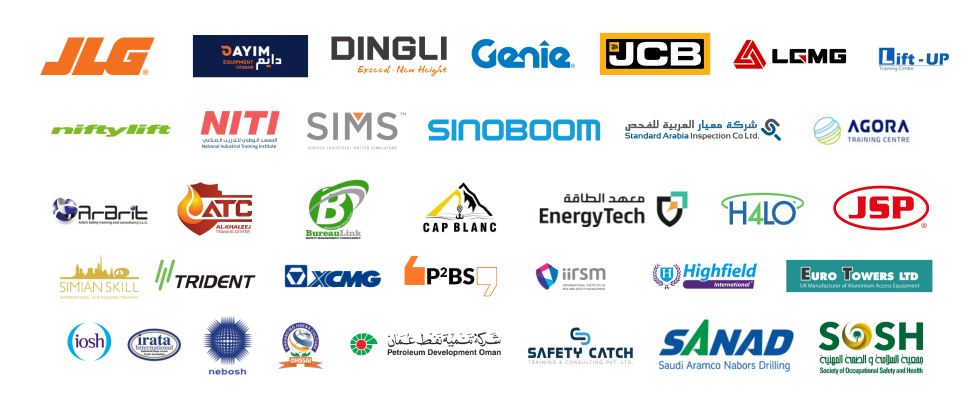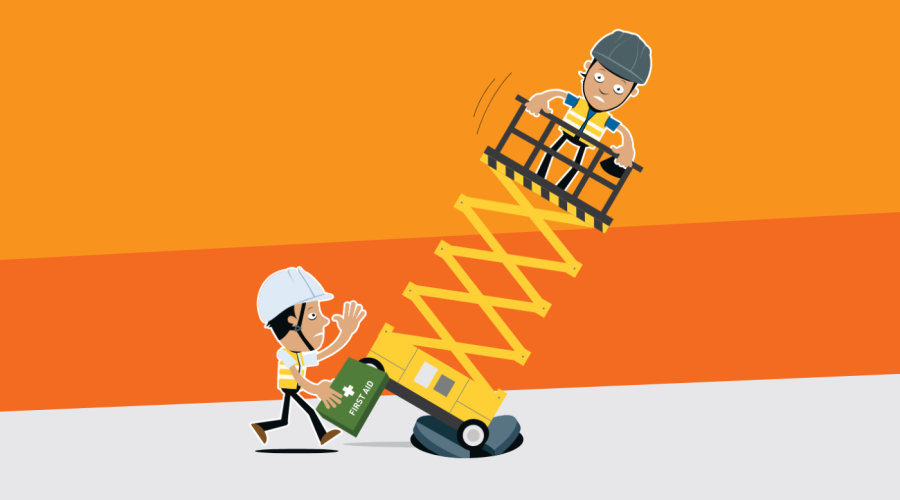IPAF Middle East Conference: Safety, Innovation, and Growth in Riyadh

The IPAF Middle East Conference, hosted at the Raddison Blu Riyadh International Convention and Exhibition Centre, brought together industry professionals from around the world for a day of knowledge sharing, industry insights, and networking opportunities.
The conference was opened by Jason Woods, IPAF’s Regional Manager for the Middle East and South Asia, and Romina Vanzi, who highlighted the remarkable growth of Saudi Arabia and its ever-increasing industry importance in the region. Woods discussed his 12-year journey representing IPAF while residing in the UAE, sharing key milestones from 2011 to the present day and beyond. Notable highlights included IPAF’s involvement in Dubai’s Expo 2020 and the inclusion of IPAF standards for the NEOM project.
In 2011, 500 operators were trained in the Middle East. By 2017, this number had risen to 5,094, and in 2024 alone, the region has trained 14,500 operators to date, illustrating an impressive rate of growth.
Peter Douglas, IPAF's CEO and Managing Director, presented IPAF’s numerical achievements, spotlighting successes in Europe, Asia, and the Americas. He noted that the most significant growth rates outside of Europe were seen in Asia and the Americas. The ePAL App, now active in 205 countries, saw 62% of PAL cards issued digitally in 2023, a figure that has risen to 67% so far in 2024. IPAF's focus on digitalisation remains a key priority, with 173,316 PAL cards issued globally in 2024, including 14,504 in the Middle East.
The IPAF Accident Reporting portal received 1,022 reports in 2023 from 42 countries worldwide. IPAF’s CEO emphasised the need for more member countries to submit accident reports, as over half of IPAF member countries are not yet fully engaged in this practice. He stressed that learning from accidents is crucial to developing new training programmes to reduce incidents and enhance operator safety.
"IPAF is run by its members for its members," Peter Douglas said. "Our members are our strength. This is a unique industry, and IPAF is a unique federation. I encourage those who are actively involved in powered access operations to explore our membership options and support our work in promoting and enabling the safe, effective use of powered access worldwide."
Following this, Phillip Pearson, Chief Executive of IIRSM, joined Jason Woods on stage for an MOU signing between IPAF and IIRSM, marking a significant milestone.
A panel discussion followed, featuring Darren Williams (Head of High-Level Access at Emrill Services LLC), Abdullah Al-Ghamdi (Chairman, Society of Occupational Safety & Health, Saudi Arabia), Ian Fyall (Managing Director of Simian Skill), and IPAF’s Jason Woods. The panel delved into the Importance of a Code of Practice, referencing various Middle Eastern countries and sharing real-life examples of how safety standards can be improved through collaboration and good practice.
Next on stage was Fahad Al Rabaani, Lifting Head at Petroleum Development Oman (PDO), who highlighted the importance of international accreditation and safety standards in PDO’s success, encouraging attendees to embrace better standards and accreditation for long-term success.
The event continued with a heartfelt panel titled Life After the Fall, featuring a father-daughter duo, Jason Anker and Abi Taylor from Proud 2B Safe, alongside Shaikha Ben Mahfoudh, National Head of Dayim Training Hub, and Jason Woods. Jason Anker shared the emotional story of his life-changing accident, which left him paralysed after a fall from a height of 10 meters. He spoke candidly about the impact on his physical and mental health, while his daughter, Abi, shared how the incident rippled through their family. The panel underscored the importance of safety and the long-lasting consequences of failing to adhere to safety measures. Anker urged industry leaders to listen to workers' safety concerns and discourage unsafe practices, reinforcing the message that nothing is more important than returning home to loved ones.
After the lunch break, Coy Wilcox, representing SANAD (Saudi Aramco Nabors Drilling), took the stage to discuss SANAD's journey. He reflected on the tragic death of a 19-year-old worker due to insufficient training, which prompted SANAD to implement rigorous safety training programmes.
The day continued with Terry Allen, CEO of Serious Industrial Motion Simulator (SIMS) of Canada, a gold sponsor of the event. With a background in software and IT, Allen introduced the VR MEWP experience, providing conference attendees with a hands-on demonstration of how Mobile Elevating Work Platforms (MEWPs) operate and how virtual reality can be leveraged to improve operator training in construction environments.
The next session was the Safety Catch presentation by Civil Engineer Josy John, which delved into emerging technologies such as automation, IoT, AI, and big data. He further explored how these innovations are transforming industries by empowering employees and safety managers. The presentation emphasised the importance of fostering a safety-first culture and how Industry 4.0 can automate certain safety practices to further protect workers.
Following another coffee and networking break, attendees were treated to a panel discussion titled Preparing Your Project – Safety & Welfare. Syed Mazhar, HSSE Department Director at AlBawani and Chair of IOSH’s UAE branch, Paul Slather, Executive Director of Attractions QHSES, Wim Raath, OHSE Director GS EMEA, KBR, and Robert Munn, Senior Vice President HSEQ, Sports Boulevard Foundation (SBF), all featured, discussing a wide range of topics related to the construction industry.
Brian Parker, IPAF’s Head of Safety and Technical, rounded off the day’s presentations by analysing the previous year’s (2023) fatalities and accident data. All accident data submitted to the IPAF Accident Reporting Portal is anonymised and forms part of the Global Safety Report, which analyses the primary causes of serious injuries and fatal accidents occurring during the use of MEWPs for temporary work at height. He also reviewed the fatal and major causes from 2021–2023, such as falls from the platform, electrocutions, entrapment, mechanical/technical failures, being hit by a vehicle/machine, and being struck by falling objects. Parker encouraged attendees to help IPAF by reporting accident data, as the number of reports from the Middle East currently stands at half of the previous year’s total.
Thank you to everyone who attended IPAF’s Middle East Conference in Riyadh, Saudi Arabia. It was a pleasure hosting you, and we look forward to organising further events in the region.
A special thanks to our sponsors for supporting IPAF’s Middle East Conference:

